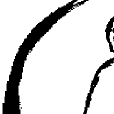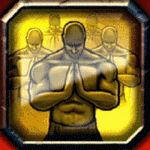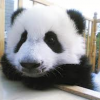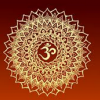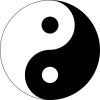Search the Community
Showing results for tags 'mopai', 'dalai lama', 'buddhism' or 'vajrayana'.
Found 99 results
-
Does anyone practice Zazen and in particular the style closely resembling Shikantaza ("nothing but precisely sitting")? This is a method of practice that lineages like the famous Soto Zen tradition of Kōdō Sawaki & Kōshō Uchiyama are famous for. Famous monasteries and training locations like Antai-ji, Gyobutsuji Zen Monastery, and Sanshin Zen Community all belong to this school. I would be interested to know how Daoists approach and view this practice in their own words. Then if some are interested I`d love to dialogue a bit about on it
-
Hello, I have read certain excerpts of Buddhist literature. Directly translated words written down a long time ago, when they started having a written language. It has made my life richer. I feel that all of these ancient people have to be listened too. I feel that ancient people tend to not have religious motives and their stories are free from political-religious rhetoric that leave you feel clean with a sense of purity. I wonder if any pure ones will ever write down ancient words handed down through the ages about reality. I feel that people are not told the truth and many things people are told to be fairy tales are in fact true. amitabha adia
-
To become enlightment means viewing the world without any extreme opposites. Thinking about that a metaphor was created in my mind: Life is like a spinning disk. You are on the disk and the Universe is around you. You move closer to the center when you are giving up extreme opposites. The more far away are you from the center, the more delusion filled and distorted your view on the Universe becomes. Only in the middle can you view reality as it is. (But how you know where is the center? )
-
Hello there! I consider myself a Buddhist, I joined because I can discuss Taoism here (I couldn't find any reading material about Taoism and the Tao to get a full "picture of it") and my current spiritual life is complicated (I truly practice only the non-attachment part of Buddhism, I do not follow the Eightfold Path, and ceasing desire is discussed in the first chapter of the Tao Te Ching). I need to consider Taoism and Syncretist ideas as my belief system too, I think. Hope I will be a part of this community: Torkys
- 1 reply
-
- 2
-

-
- buddhism
- syncretism
-
(and 1 more)
Tagged with:
-
Greetings from South America. Started reading the Tibetan Book of the Dead, I was drawn to Buddism wanting to make myself a better person. I am here to learn and give.
-
Synopsis: "Sky Dancer" is a film about the daily life and teachings of one of Tibetan Buddhism's great female masters. In a world where ethnic and political tensions are driving people apart, we are transported to a community where Chinese and Tibetan students study together and are treated as equals. Khandroma Kunzang Wangmo the matriarch and spiritual leader of a remote area on the Tibetan plateau is one of very few women ever to receive a position of power in Tibetan Buddhism. Even more rare, she is the descendant of two extremely significant and highly respected masters of Tibetan Buddhism. The film is an inside look at the daily life and journey of this extraordinary woman who is a living example of wisdom and compassion in a world that so often seems to be lacking genuine examples of both. http://www.cultureunplugged.com/documentary/watch-online/play/50486/Sky-Dancer
-
In one aspect this idea of being celibate and doing meditation daily seems enticing, but living in modern society, I doubt anyone is going to be successful in achieving enlightenment. It seems like becoming a monk is the noble path for fulfilling enlightenment. It also seems that many religions tie celibacy very closely to enlightenment. But does becoming a monk and pursuing Buddhism full time lead to enlightenment in actuality? Or does it just increase your chances? I know it would make celibacy easier, but is there really a purpose to all that? They say desire is the root of suffering. Is there more suffering in this life that is outweighs the positives? This leads to deeper questions like what is the purpose of life? Is it just to procreate? Can one find peaceful/enlightened states while procreating? Is this 10 day silent retreat (Vipassana) just a way of forgetting these animalistic urges short-term? Or does is lead to a powerful new technique for developing mental stillness while overcoming the rigors of everyday society? I recently picked up the Bhagavad Gita due to suggestions by Indian spiritual readings and I found it saying that we are nothing and everything at the same time. It doesn't seem like procreating or even having intercourse embodies this philosophy. The texts goes so far as to say we shouldn't take part in worldly pleasures. Yet, I have also read that the Hindu gods rejoice in sexual intercourse and even embrace it for marriage and with multiple partners. This leads to a word that has been on my mind many a day lately and that's the subject of lust. Lust to me is what I find in a partner. And isn't love the way we are suppose to feel for all other humans? I have a partner, but my animalistic instincts direct me away from having just one partner. And that brings me to my point of if having a partner is even good in the first place. I feel in every day society and partner life/attachment, at least moving out to a semi secluded area down the road would be the most logical. That way I would not have to deal with the ongoing issue of lusting for the opposite sex. Thoughts? Warmly, Chi Boy
-
Hi, I've been on various kinds of 'spiritual' path for years. Quite eclectic. Been with a few gurus, some good some bad, some in between. Mainly checking things out here today. Time will tell if I fit here. Free expression is important to me, I heard this is one of the best places for that. Van
-
Hi All. Where can I find the needed skills to be tested or shown on each degree of "72 Levels of Mo Pai"? Any resources will be welcomed! Thank you
-
Greetings Every One! I have been off the forum for quite a while now. Lecturing in China for a few years has come to an end, and now I am back in the states. Starting over in Pennsylvania, Milford. This January I have re-opened my cultivation school, and have classes in full force. Last year I have placed all my practices into two systems White Canopy Platform Cultivation, and Imperial Zong Huan. For a description of both, please visit Gui Zhen Society I hope every one is doing well. Peace and Blessings, Lin
- 4 replies
-
- 2
-

-
- Daois
- Confucianism
-
(and 5 more)
Tagged with:
-
Interesting video. Buddhism statements at 40:20 http://youtu.be/7r-3FNtgOFM
-
Gui Zhen Society in Staten Island NY. Hi Every One! I'm Lin, been on the Dao Bums for ages now, and recently moved back to the U.S. from China. I re-established my cultivation school in Staten Island and am offering a number of cultivation methods I have been putting together over the last several years. One of them is called White Canopy Meditation, a.k.a. Jiu Wu Tan Gong (Nine Five Platform Cultivation). Its quite a lengthy description, so I wil leave a short one here and link you to my personal practice page for the full idea: White Canopy Description Also new to the martial arts world, as well as to the Qigong, meditation, etc world, my own expression of both spiritual cultivaton and martial art , Origin and Illusion (Zong Huan). Origin and Illusion: Zong Huan Peace and Blessings, Lin Ai Wei Gui Zhen Society, Pure Mind Center Pure Mind Center Blog
-
Per Moderator message: Original Thread started in: CourtYard- Welcome from a new member: http://thedaobums.com/topic/38707-the-magus-of-java/ Obviously members still wanted to discuss this topic, but with all respect for Moderator message, I decided to take it to another forum (being this one)
- 32 replies
-
- 4
-

-
- Magus Of Java
- John Chang
-
(and 2 more)
Tagged with:
-
I have felt that the two were more similar than different, but lately I am seeing very great differences. I think that the goal of the two religions in meditation is the same. The Taoists in the Secret of the Golden Flower, say that the ego can remain after the body dies. I think, although I am not sure, that Taoism like Buddhism believes in ending the cycle of rebirths. This would have to be implicit in the Golden Flower otherwise the ego, as the Taoists call it, would simply be reincarnated, which I do not believe is implied in the SGF. But I am feeling that the darma or dhamma of Buddhism is a stricter and more explicitly laid out program. I do not read in Buddhism of the channels, e.g., the Governor, Imperial, or Central channels that have such prominence in Taoism. The Buddhists speak of anatta, non-self, when they describe the sensifacient phenomena of the body. In other words, these are merely material phenomena and not indicative of a "self." But one unanswered question I have is that the pattern and combinations of these material sense events are unique to one person. Therefore when we say Mr. X is prone to headaches while Ms, Y is not, the aggregate of sense events one person has would seem to define a "self". I have not cracked the idea of non-self, either that the world has no self or that the body has no self. This seems like a contradiction of the Taoists and maybe the Tibetan Buddhists both of whom hold that there is some sort of consciousness or "ego" that separates from the physical body and that can be reincarnated or not. Theravada ideas on non-self may contradict Tibetan ones. But if there were no self, soul, ego or conscious entity of some sort, then it would be impossible to escape the cycle of rebirth because there would be nothing that was escaping it. Whether I should regard myself as a self or not is a mystery to me. Any clarification would be appreciated.
-
In Buddhism there is Angulimala, a serial killer who killed 999 people and wore their fingers around his neck in a garland. After meeting the Buddha he threw away his weapons, took up meditation, and became an Arahant. There is also Milarepa, a sorcerer that summoned a hail storm killing 35 people. He sought out a guru and strived in meditation for 12 years until becoming a fully enlightened Buddha. Are there any characters like this in Hinduism? Edit: Also in Taoism because why not.
-
I enjoyed and learnt something from this presentation. Hope you will too
-
I recently picked up the book, "Self Liberation Through Seeing with Naked Awareness" translated by John M. Reynolds. I have always loved the title and the translation. One thing he notes in his commentary is the power of titles. According to John Reynolds, a good student can pick up the nature of the work just from the title. Long after I have read a book, listened to a live teaching, or followed a practice, I typically only remember a phrase to sum it up. In some cases, even the title of a book I've never read sticks with me (the last two below), and comes drifting up from time to time. Some of my favorite titles are: Self Liberation Through Seeing with Naked Awareness (trans. John M. Reynolds) Be as You Are (The Teachings of Ramana Maharshi translated and edited by David Godman) The Wisdom of No Escape (by Pema Chodron) The Real is Unknowable, the Knowable is Unreal (by Robert Powell) What are some teaching titles that stick with you?
-
Just for fun. So this thead is for a Buddhist Giveaway. I'll let this run until 12 pm PST (2400 hrs) Sept. 5. There's also a Taoist Giveaway so check that out too if you're interested. I'm going to have Amazon ship a brand new copy of the following book to whomever wins. I'll even have it shipped internationally should someone outside the U.S. be the winner. The only exception being if that person lives somewhere that Amazon doesn't deliver. The Diamond Sutra Explained by Master Nan Huai-Chin Think of a number between 0 and 200. The person closest to the number I'm thinking of will win the book. Post your guess. The winner can PM me once it's over for his/her shipping address.
-
Hi, i practice kung fu. And i am searching, for a more internal discipline to compliment. Im currently looking between Taoist Chi kung, Buddhist Chi kung or yoga. I know some differences between taoist, and buddhist breathing. Taoist contracts abdomen on inhale and expands on exhale. Buddhist expands abdomen on inhale, and contracts on exhale. But i dont know how this affect Chi circulation, ying/yang principles. Microcosmic/Macrocosmic orbit circulation. I feel taoist breathing more yang than ying because it energizes me more than relaxes me (which i feel on buddhist breathing). I mention yoga, because prior to feeling the circulations, im all over muscular tension, and i feel that before i need to work this energy blockages, this shield that is created by emotional tensions. Example: shoulder, hip openers. What i dont like about yoga, is that i dont perceive (maybe is just my ignorance), a fundamental principle that is comprehensive from a rational point of view, i feel it more god based, religious. Is there some analogy between chi circulation orbits, and prana circulation? Other possibility is doing zazen/kinhin, but i feel that im not ready mentally. Chi kung works proggresively. body, mind, spiritual centers. For Example Lohan Chi Kung: Sap Bak Lohan (energy circulation, body). Siu Lohan (mind circulation, energy from body to mind) Dai Lohan (mind to spirit, meditation) I feel yoga works more on body, and spiritual centers. and zen on mind, spiritual centers. I feel zen is not the answer yet, because i have a troublesome personality/physical-emotions manifestations to resolv first. Japanese are more propense to zen, because they have born/rised/act, in the zen way of life, or this prior western cultural invasion. I find zen, simple as perfection, but i dont feel im ready. Is there a chi kung, that centers on body tension blockages like yoga?
-
Perennial Philosophy/Perennial Technique: Spiritual Thesaurus (copied from a different thread I started, as it seemed worthy of it's own) My vocabulary of terms and practices is pretty much solely western or Indian/Sankrit/Yoga/Tantra, etc. Along those lines, does anyone know of any book, pdf or website (preferably an all in one source) that serves as a sort of spiritual thesaurus between the different traditions/geographical locations? Or a spreadsheet/chart? I believe/know there is a perennial philosophy (Truth is Truth, right?) and like to think that there's a perennial practice as well (hence the similarities between Self Inquiry/Philosophy systems [Jnana, Zen, Buddhism, Advaita, Gnosis, Sufism] and energy work systems [Yoga, Tantra, Neidan, Taoist, Tibetan, Christian Kabbalah, Kabbalah, Dhikr etc; humans are all built the same, right?]). If no such document exists then perhaps this would be an interesting project to take up on here/and through other forums. Part of me that likes to think of universal theory/practice is a bit apprehensive about starting on a new route and coming across potential clashes/dissonances throughout traditions, but I guess this is just ego attachment/fear.
- 21 replies
-
- 2
-

-
- Perennial Philosophy
- Sadhana
-
(and 8 more)
Tagged with:
-

How does one 'choose' a religion, spiritual path, etc?
qvrmy11vz posted a topic in General Discussion
While talking to a Bhakti-yoga practitioner today, I couldn't help but notice the many similarities between the way these practitioners (Hare Krishna folk) live their life compared to Buddhist and Taoist teachings. Basically, and unsurprisingly, religion and/or spirituality share many common principles. But how does one hone in on one school of thought? For example, if I choose to become a Bhakti practitioner, I feel like I would be missing out on a whole other world, namely, Buddhism and Taoism. Anybody here 'migrated' from one religion or spiritual path to another or encountered this question along their own path? Thank you for your time to read this -
These teachings are a combination of esoteric traditions and were traditionally practiced to free the physical, energetic and spiritual body from crystallize emotion in the body and transform that energy to move you forward in your path. This special workshop includes secret esoteric teachings from Daoism & Buddhism. This workshop will include both lecture and hands on application. The total cost of the three day workshop is $600.00. Payment includes a booklet of handouts and a certificate presented from the Internal Alchemy Institute to all individuals who complete the workshop training. A non-refundable registration fee of $200.00 is required to hold each applicants place, with the remaining balance ($400.00) being paid before May 2nd, 2014. When you choose to gift yourself with this experience, you are choosing to: Experience more positive daily shifts. Create healthy and sustainable new patterns. Maintain more balance in your life. Navigate life’s challenges with a peaceful heart. Gain insight and clarity into seemingly uncontrolled thoughts and behaviors. For more information: Call: (831) 204-8014 or Email: [email protected]
-
I'm thinking about creating a nei gong forum, but first I need to anyone would be interested in participating. If you're wondering why I'm thinking of doing this it's because, for the most part, the only reason I'm on TTB in the first place is to follow nei gong/mo pai related threads and sort of keep an eye on what's going on. However, as it turns out, I think it's quite obvious that TTBs is a good place for these threads. It is my opinion that there needs to be a separate forum for Mo Pai/nei gong related topics. Anyone agree with this? Who all would be interested in participating in a nei kung forum?
-
With his forty five years of experience, Shifu Hayashi (Christopher Goedecke) explains the spiritual nature and the transformative process of the Martial Ways in the Mindfulness Tradition of the ancient lineage masters in this 3 part interview. I know everybody on the Way will find wonderful relevance in this interview. -Tom
-
Hello everyone, this is my first post here. I live in NJ. I am apprentice to a Buddhist monk in martial lineage. We have been working on an interview about spiritual martial arts, internal energy, and living a mindful life. Here it is. I know everyone here will love it. Please tell me what you think. -Tom

